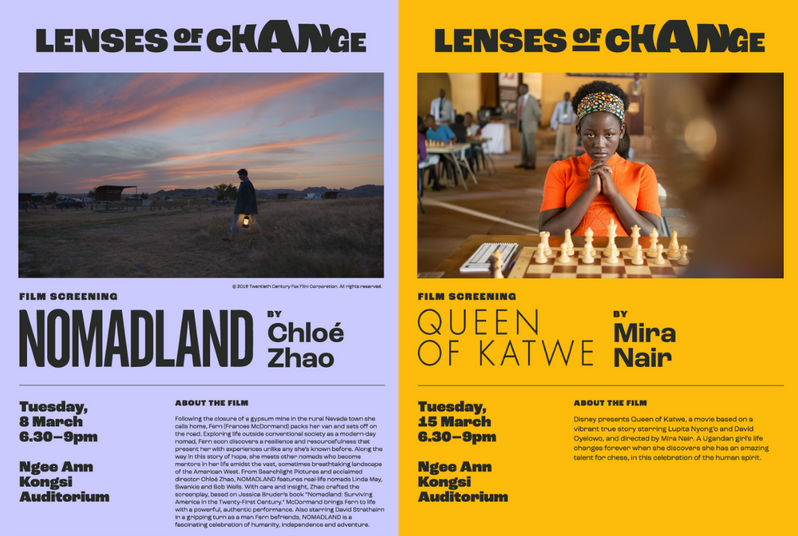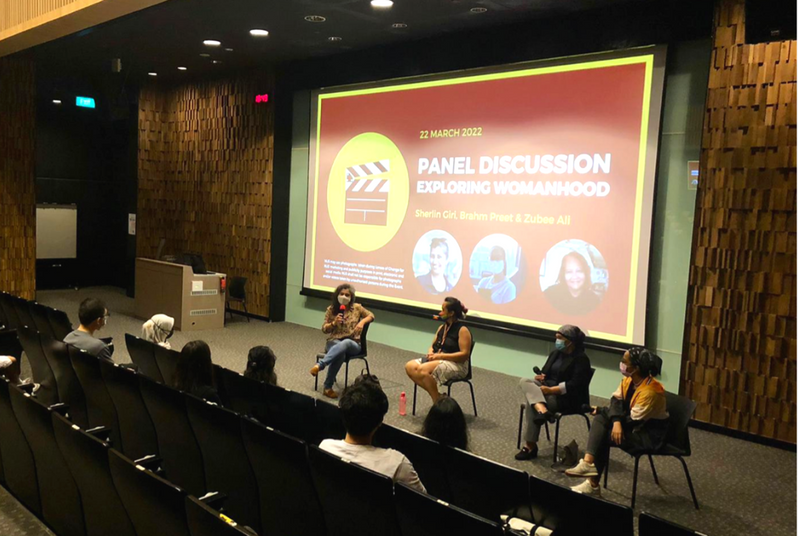In March 2022, NUS Office of Student Affairs (OSA) presented “Lenses of Change” at the International Women’s Month to commemorate the diversity of womanhood experiences.
Two movie screenings by award-winning Asian Women Directors – “Nomadland” by Chloe Zhao and “Queen of Katwe” by Mira Nair explored the challenges and celebrations of womanhood, friendship and the idea of home, and kickstarted the month-long event.
Rasyidah Mudzzafar, Year 1, Faculty of Science, greatly enjoyed watching Queen of Katwe where the film’s protagonist – Phiona Mutesi overcame poverty, patriarchy and challenged gender norms to emerge as a chess grandmaster. Rasyidah wishes to emulate a similar courage by having faith in herself and her abilities and not be intimidated by others who are seemingly better than us.

After the movie screenings, three extraordinary women – Brahm Preet, Year 3, Faculty of Science and President of NUS Sikh Society; Sherlin Giri, alumni, Faculty of Arts and Social Sciences and a single mum who is reframing the role of a housewife as a high-level management job; and Zubee Ali, a community developer and advocate for women from difficult circumstances talked about their real-life experiences.
The conversation began with personal sharings of present-day challenges the women faced – from expectations on women to care for the family, from physical attractiveness to the male gaze or expressed by “way of portraying and looking at women that empowers men while sexualising and diminishing women”. The women discussed how these societal expectations were impossible to fulfill.
Sherlin retold a heartbreaking story of how she was shamed for not grieving in the “right way” i.e. wailing in despair at her husband’s funeral.
Swasti Kurana, an exchange student from India and a forum participant gave the example of a bride burning practice found in some parts of the Indian subcontinent. The gender-based dowry death homicide occurs when a woman is murdered by her husband or his family for the refusal to pay additional dowry.
Brahm concluded: “There are surprising commonalities seen in different cultures, religions and classes which inspires a lot more understanding between us all. There is critical need for conversation as without it, these commonalities will not be discovered and allyship will not be forged. There is also a need for conversations with the "older", more experienced generation to learn how else we can contribute and in what manner!”
About Lenses of Change
Be in the know for future events related to self-discovery, learning and community. Bookmark this page!
Contributor
Office of Student Affairs




